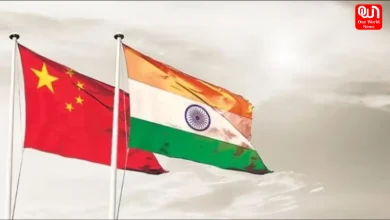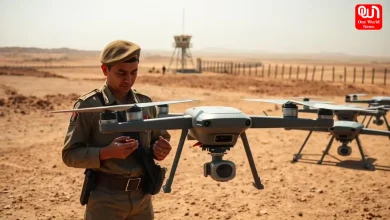Life of a Foreign Correspondent

Life of a Foreign Correspondent
“The situation that broke out in the West Asia was covered, essentially, by five outfits i.e. AP, Reuters, ASP, Al-Jajeera and Al-Arabia. People in India are looking at things through the prism of the west. It is one of the reasons we have not been able to grapple what is going on over there. What this does is, we are reading much less about the rest of the world,” Suhasini Haider, foreign correspondent, The Hindu.

Suhasini Haider, one of the pillers of foreign correspondence
Till about 1980s the news reporting was seen as a public service. It was seen something you did because you wanted to educate and inform people. When the 24 hour news came, everything changed. Internet has changed that for the newspapers as well. After the news became a profitable business it became less of a public service that it used to be. It became a tool to grab people’s attention at any cost. It became only about eyeballs.
A foreign correspondent in an Indian news agency context is a rare breed. It is a lonely job. It is lonely because the numbers have decreased dramatically. It is no longer seen as something necessary. There are agencies who get you most of the resources you want in just a click.

Pallavi Aiyer
This dearth of foreign correspondents has lead to a situation where news is mainly event or incident based. The only time we look at another country is when, either something big happens there or something happens to Indian diaspora. We have lost that era of reading and taking a layered account that only a foreign correspondent from your country can provide. Talking about life of a foreign correspondent Pallavi Aiyer, foreign correspondent to many news agencies, addressed the current situation where there has been a depleting layer of foreign correspondents.
“I have to tell you this that Pallavi is unemployed and is unemployed for large periods of time, because being a foreign correspondent is a very-very tough proposition. Pallavi is a commodity that often media editors don’t want. I started my journey as foreign correspondent in China in 2002. I got to know that I was only the second Indian correspondent based in the country. I moved to Brussels, which is the head quarters of the European Union, in 2009. It was home to second largest press core, following Washington DC. And there was not a single India Journalist on the ground. I then moved to Indonesia, largest economy in South-East Asia, a democracy just about to have a general election and how many Indians covering the events in Jakarta? None!”, Pallavi Aiyer.

We are reading much less about the rest of the world
It is said that financial factor is the single biggest issue when it comes to a foreign correspondent. The cost of living in most of the other countries is high, there are other expenses of family related and hence the situation. But only monetary aspect cannot be sighted as the only explanation. There is competition on the domestic turf. Being a complex country, India has a lot of problems. So, there is no dearth of news on daily basis.
There is a general perception that India is increasingly becoming disconnected. There is a belief that people don’t care and things are from away and don’t matter. But the fact remains that we are a very connected world. There is always a possibility to draw connections, implicit or explicit, all the time. It would help to educate Indians that why global events impact India. Audiences do care if they are educated about it.
India could use its media to empower itself on the global front. China has already done that. Media could be used an arm to inform the populace, which results in greater awareness.






